Dear friends, are you passionate about building aquascapes for small tanks? Small tank aquascaping may cost less and is easier to locate. However, it is a little bit hard. But do not worry, here are some tips and principles for you. Let’s dive into exploring!
Content Table
Is aquascaping difficult in small tanks?
Exactly, properly aquascaping small tanks is difficult. It will meet challenges, such as frequent maintenance, suitable fish, plants, and aquarium equipment. Besides, there is less water in the tank for the small dimension, so the water quality may get worse quickly. However, small tanks are easier for beginners.
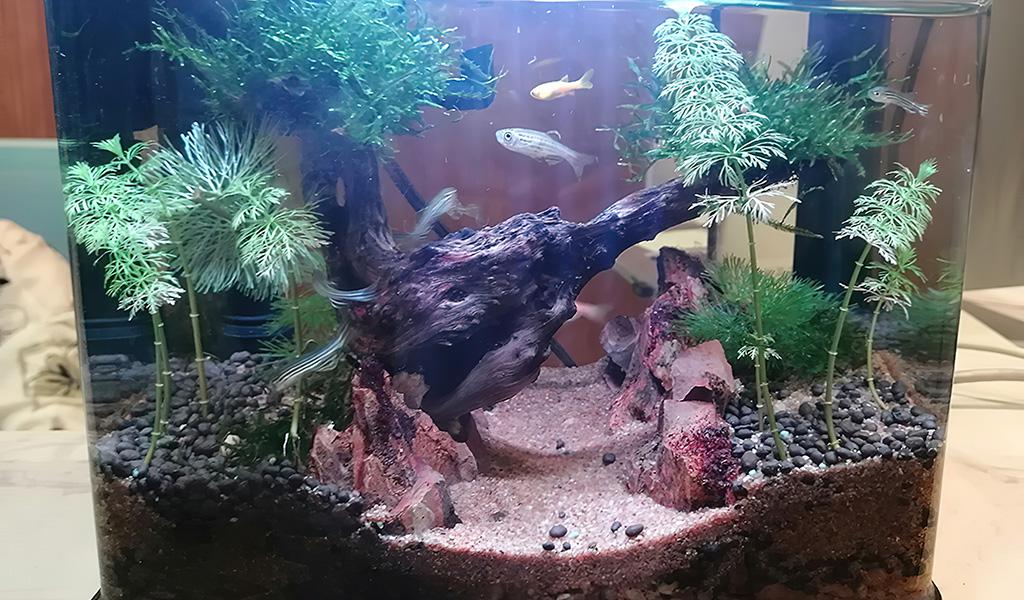
A guide to aquascaping for small fish tank
In this part, we will provide some pointers about aquascaping a small aquarium.
1. Focal point
It is better to choose a focal point. Besides, you should also determine hardscape dominant or plant dominant, rather than both. In addition, you can follow the rule of thirds the golden ratio. The rule of thirds refers to dividing your tank into nine segments of the same size, divided by two vertical lines and two horizontal lines. After you determine the segments for the main decorations, you can design the rest segments for aquascaping. On the other hand, the golden ratio means dividing the tank into two parts. If you divide the larger part by the smaller part and divide the whole part by the larger part, finally the results are equal.
2. Suitable aquatic plants
Aquatic plants can provide shelters, shade, or hiding places for fish and control the growth of algae. Carpeting plants are great for small tanks, including marsilea hirsute, glossostigma elatinoides, marsilea minuta, dwarf hairgrass, and dwarf baby tears. They will form a green carpet along the bottom of the aquarium. In addition to this, there are also floating plants, such as duckweed, water spangles, dwarf water lettuce, and Amazon frogbit. Aside from that, mosses are also popular. Java moss, crystalwort, pellia liverwort, and Christmas moss are feasible.
By the way, aquatic plants with small leaves can be planted in the middle or back, and plants with large leaves are recommended to be placed on the edge sides. Meanwhile, it is best to place plants with dark colors on the corners of your aquarium, while the light-colored ones can be put in the middle.
3. Ideal fish and creatures
Bettas, neon tetras, danios, and guppies can be kept in small aquariums. Zebra danio and neon tetra are ideal for 10-gallon tanks, on the other hand, small fish, such as rice fish, killifish, cherry shrimp, and ghost shrimp are excellent options for 5-gallon tanks.
4. Aquarium Equipment
Aquarium light and filter are necessary. Ideal full spectrum clip-on light can boost the growth of fish and plants in small fish tanks. An aquarium filter can remove debris and cycle water in the aquarium. In addition, a mist maker is also applicable, which can water into the natural and relaxing mist to achieve fogging in no time.
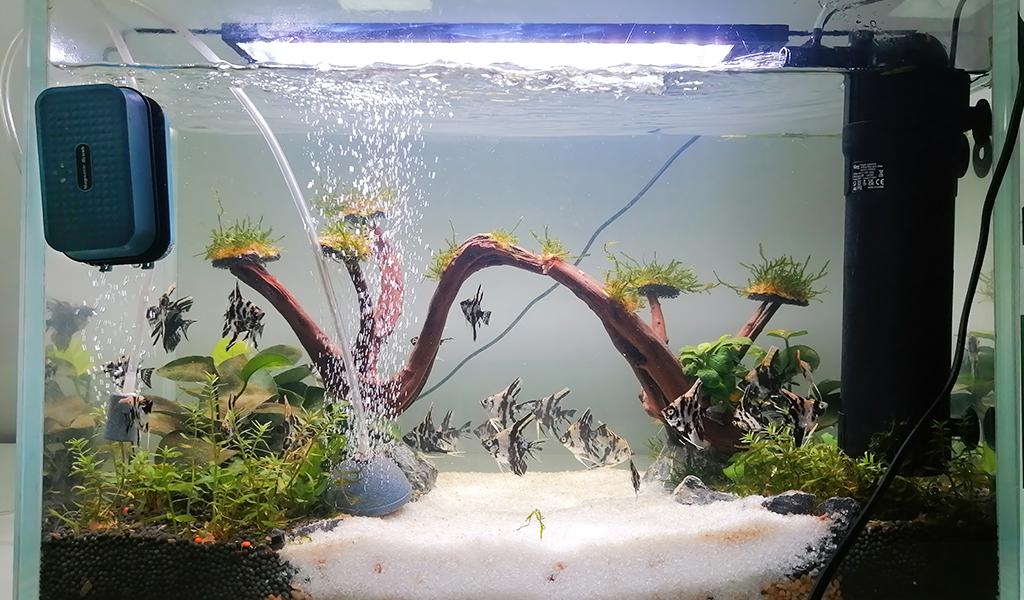
How to make an aquascape in a 5-gallon and 10-gallon tank?
To aquascape a tank, we can follow some regular steps. Before you begin, you should determine the style you want and the layout of your aquarium. Then, prepare all items needed for aquascape, aquarium aquascaping tools, instant gel, aquascape adhesive, sand, gravel, rocks, wood, and plants for instance. Next, you can start aquascaping.
In the first place, add gravel and aquarium soil to the tank bottom, then you could smooth them with a sand spatula. Please remember not to mix the two. The aquarium soil is to grow aquatic plants. Next, you can place rocks and wood in the tank. The stones or rocks can be varied in size, which is close to the natural appearance. Do not forget to attach them with aquascape adhesive. After that, you can plant some aquatic plants above the aquarium soil, or on the wood or rocks. When you place the plants on the wood or rocks, the instant gel will help you out.
Java moss and dwarf baby tears are suitable for 10-gallon tanks, while java fern, hornwort, and anubias are great for 5-gallon aquariums.
Finally, add water to the aquarium, and change the water the next day. Attention here, it is better to put the aquarium sponge or a level of plastic above the soil or sand in advance of adding water. And about three to five days later, you can introduce fish to the tank. However, before adding fish, do not forget to test the water with the aquarium water test kit, and make sure ideal water parameters.
Easy aquascape principles
In addition to all mentioned above, this segment will give you ideas of three main aquascaping principles.
1. Locate in the front, middle, and back
You should place aquarium decorations according to the principle of the front, middle, as well as back, and leave some free space on one side for people to enjoy the sight of the tank. It is recommended to place gravel and sand in the front. If you are aquascaping planted tanks, you can apply some foreground plants in the front, fescue, crawling pearl for example. But do not apply too much, because people will feel depressed about dense decorations. On the other hand, you can put stones, rocks, and plants in the middle. Vallisneria, lysimachia, and hygrophila salicifolia are great options.
Furthermore, wood, stones, and plants can also be placed in the back. Aquatic plants, such as centipede grass, and rotala rotundifolia, are excellent choices.
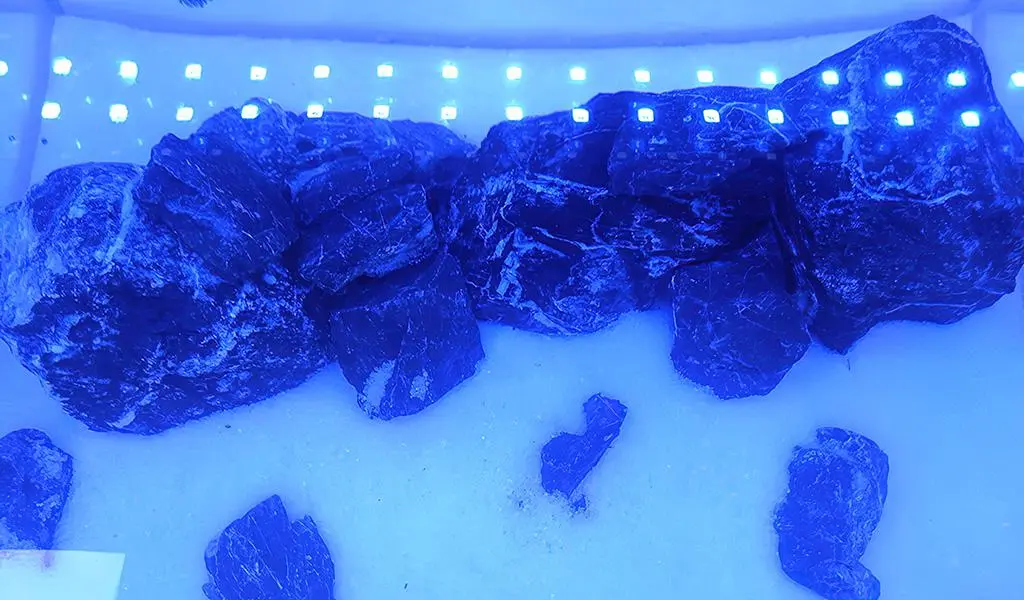
2. Natural
Many beginners prefer plastic decorations because of their various colors and shapes. Nonetheless, it is better not to place plastic aquatic plants or dyed plastic ornaments in the aquarium. As plastic decorations seem not natural. Besides that, plastic ones may bring harmful effects on your cute fish. After soaking dyed ones in the tank for a long time, the dye will release into the water, which is not good for fish.
3. Sand and gravel
You can select the ideal sand and gravel according to the aquascape style you like. Provided that you prefer a natural style, you can apply sand from rivers. Moreover, aquarium soil is good for plants.
Conclusion
After reading, we believe you have learned more about aquascaping 5-gallon and 10-gallon tanks, including tips and principles. If you want to learn more about building an aquascape for a 20-gallon fish tank, you can go for How to Build Aquascape for a 20 Gallon Tank.
Finally, we hope you can better aquascape your small tank, and don’t hesitate to share your experience here. And thanks for your reading!
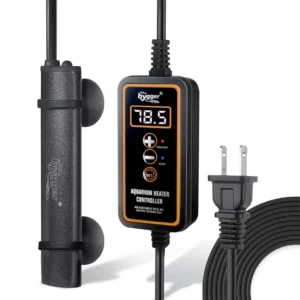
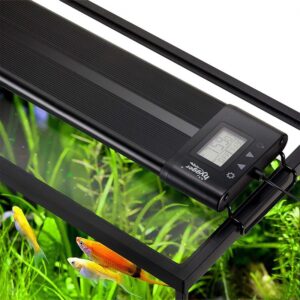
Leave a comment